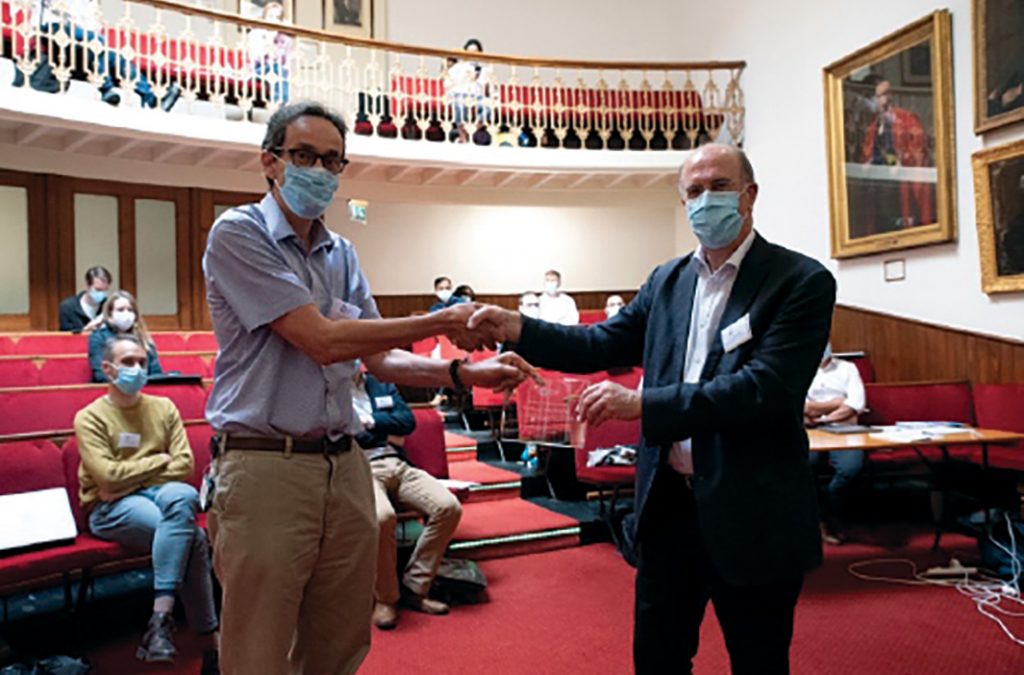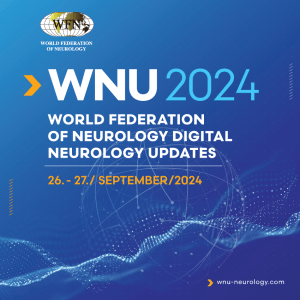In a year during which infectious diseases have enjoyed more than their fair share of time in the spotlight, redoubling of public interest and focus on the efficacy of treatments and public interventions have served as a reminder of how important research in this area is.
Throughout this time exceptional and elucidating work on the neurological impact of COVID has been undertaken, alongside the ongoing tireless work to further our understanding of other neurological infections. This crossroads of two notoriously puzzling specialties promises fascinating and frustrating challenges in equal measure. ‘Neurophobia’ famously afflicts medical students and Doctors-in-training alike, and this is surely no less the case when the central nervous system is afflicted by infection. Complex interpretation of physical examination, risk-factors, history, and clinical investigations are not made simpler by the infection’s impact on consciousness, the central nervous system’s inaccessibility, and the bluntness of available imaging techniques.
It has never been more important to develop knowledge, techniques and interest in this area.
The first day included a skills update from Dr Maneesh Bhojak from the Walton Centre on radiology in neurological infections, covering reminders for neuroimaging basics to approaches to specific conditions such as cerebral toxoplasmosis. We had microbiology teaching from Dr Chris Parry from Oxford, providing excellent tips regarding pathogen identification, and exciting insights into Next Generation sequencing and metagenomics as means to improve diagnostics. Dr Sylviane Defres delivered a talk on meningitis, elucidating some of the more complex sequelae, as well as the rarer causative organisms. The yearly Richard T Johnson keynote lecture was delivered by Prof Nick Beeching of the Liverpool Tropical School of Medicine. His talk, titled ‘An Account of the Occasional Neurological Forays of a Peripatetic Infectious Disease Physician, Illustrated with Copious Anecdotes and Reflections’ was a wonderful journey through Liverpool’s history as an important infectious diseases centre and the broader history of Infectious Diseases as a medical specialty, with leprosy as a case-example, all the while amusing and stimulating discussion with stories and anecdotes. It was a fantastic overarching view of a field’s beginnings all the way to where we are now, and a look at what it can mean to be a neurological infectious diseases physician. We also had a selection of cases presented by Dr Benedict Michael, Prof Nick Beeching and Prof Enitan Carol, all of which allowed for some excellent discussion regarding guidance updates to ethical questions. Finally, trainees from across the UK took part in the case-presentation competition. The standard was extremely high by all accounts; Nisha George won the long-case presentation prize and Thomas Locke won the flash-presentation prize with an impressive show of compressing extremely complex cases into very short spaces of time.

As well as high-quality talks and discussion, the NeuroID course offered a fantastic opportunity for networking, with coffee/tea and lunches provided by the very welcoming Liverpool Medical Institute team, and then dinner at Papillon, a local restaurant on the evening of the 13th. For the early-bird and physically active of the attendees, the next morning Prof Tom Solomon (@runningmadprof on Twitter!) hosted a 5km ‘sightseeing fun jog’!
Following this, on the second day, we had a fantastic overview of the current state of research into neurological sequalae of COVID from Dr Benedict Michael, including much of the work that has occurred across Liverpool. This prompted lots of discussion, and a look to future collaborative research, highlighted by the individual patient data study, bringing patient data from around the world to inform best practice. Dr Mike Griffiths of Liverpool University then covered meningitis and Dr Nick Davies of Chelsea and Westminster Hospital covered encephalitis. These talks were extremely clinically useful, and provided great hints and tips for clinicians developing their diagnostic acumen in this area. We had a number of cryptic case presentations throughout the day, from Dr Laura Benjamin, Dr Rachel Kneen, Prof Tom Solomon and Dr Mike Griffiths. These covered a range of topics, including the topical PANDAS/PANS which stimulated a lot of discussion regarding the controversy surrounding this diagnosis. Paediatric and adult cases were covered, ensuring a wide range of trainees with varying interests had plenty to gain from the presentations.
Finally, the second day ended with a superb NeuroID quiz, hosted by Dr Nick Davies. The quiz was fiendishly difficult, but extremely enjoyable, with questions pertaining to diagnosing infections on brain MRI (testing how well we had been concentrating!) and questions about Edward Jenner’s cow (surely testing obscure infectious diseases knowledge!). It was the perfect way to finish an excellent two days, before delegates and speakers said their farewells. The NeuroID 2021 course was most striking for its ability to both cover basic knowledge as a refresher and context-builder, and covering complex topics and cutting-edge research. From the most junior of Doctors all the way to renowned specialists, we all had plenty to gain from the course, and were also encouraged to give back to the course through discussion and networking. It was an exemplary training course, especially in the manner that it was delivered in spite of restrictions. Speakers were engaging and enthusiastic, but simultaneously all measures to ensure safety of attendees were prioritised. The conveners and organisers did a fantastic job of making everyone feel welcome, and enabled stimulating and exciting discussion at every stage. The course is an absolute must for anyone at any stage in their career, who is interested in the fascinating subjects of neurology or infectious diseases, or their intersection. It is also worth noting that the course offers 10 CPD points for delegate’s portfolios.
To find out more about the course, its previous iterations, and to get updates on next year’s course, please visit www.liverpool.ac.uk/neuroidcourse and follow @runningmadprof on Twitter!

